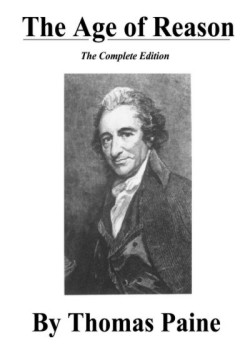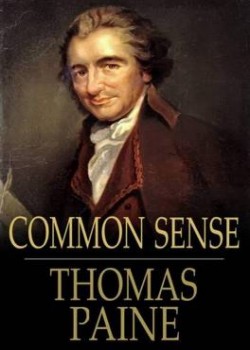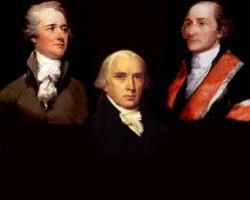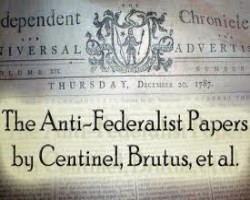HISTORY OF THE COLONIES
CHAPTER III
ORIGIN AND SETTLEMENT OF NEW-ENGLAND
§ 52. We may now advert in a brief manner to the history of the Northern, or Plymouth Company. That company possessed fewer resources and less enterprise than the Southern; and thought aided by men of high distinction, and among others by the public spirit and zeal of Lord Chief Justice Popham, its first efforts for colonization were feeble and discouraging. Capt. John Smith, so well known in the History of Virginia by his successful adventures under their authority, lent a transient luster to their attempts; and his warm descriptions of the beauty and fertility of the country procured for it from the excited imagination of the Prince, after King Charles the First, the flattering name of New-England, a name, which effaced from it that of Virginia, and which has since become dear beyond expression to the inhabitants of its harsh but salubrious climate
§ 53. While the company was yet languishing, an event occurred, which gave a new and unexpected aspect to its prospects. It is well known, that the religious dissensions consequent upon the reformation, while they led to a more bold and free spirit of discussion, failed at the same time of introducing a correspondent charity for differences of religious opinion. Each successive sect entertained not the slightest doubt of its own infallibility in doctrine and worship, and was eager to obtain proselytes, and denounce the errors of its opponents. If it had stopped here, we might have forgotten, in admiration of the sincere zeal for Christian truth, the desire of power, and the pride of mind, which lurked within the inner folds of their devotion. But unfortunately the spirit of intolerance was abroad in all its stern and unrelenting severity. To tolerate errors was to sacrifice Christianity to mere temporal interests. Truth, and truth alone, was to be followed at the hazard of all consequences; and religion allowed no compromises between conscience and worldly comforts. Heresy was itself a sin of a deadly nature, and to extirpate it was a primary duty of all, who were believers in sincerity and truth. Persecution, therefore, even when it seemed most to violate the feelings of humanity and the rights of private judgment, never wanted apologists among those of the purest and most devout lives. It was too often receive with acclamations by the crowd, and found an ample vindication from the learned and thedogmatists; from the policy of the civil magistrate, and the blind zeal of the ecclesiastic. Each sect, as it attained power, exhibited the same unrelenting firmness in putting down its adversaries. The Papist and the Perlate, the Puritan and the Presbyterian, felt no compunctions in the destruction of dissentients from their own faith. They uttered, indeed, loud complaints of the injustice of their enemies, when they were themselves oppressed, but it was not from any abhorrence of persecution itself, but of the infamous errors of the persecutors. There are not wanting on the records of the history of these times abundant proofs, how easily sects, which had borne every human calamity with unshrinking fortitude for conscience' sake, could turn upon their inoffensive, but, in their judgment, erring neighbors, with a like infliction of suffering. Even adversity sometimes fails of producing its usual salutary effects of moderation and compassion, when a blind but honest zeal has usurped dominion over the mind. If such a picture of human infirmity may justly add to our humility, it may also serve to admonish us of the Christian duty of forbearance. And he, who can look with an eye of exclusive censure on such scenes, must have forgotten, how many bright examples they have afforded of the liveliest virtue, the most persuasive fidelity, and the most exalted piety.
§ 54. Among others, who suffered persecutions from the haughty zeal of Elizabeth, was a small sect, called from the name of their leader, Brownists, to whom we owe the foundation of the now wide spread sect of Congregationalists or Independents. After sufferings of an aggravated nature, they were compelled to take refuge in Holland under the care of their pastor, Mr. John Robinson, a man distinguished for his piety, his benevolence, and his intrepid spirit. After remaining there some years, they concluded to emigrate to America in the hope, that they might thus perpetuate their religious discipline, and preserve the purity of an apostolical church. In conjunction with other friends in England they embarked on the voyage with a design of settlement on Hudson's river in New-York. But against their intention they were compelled to land on the shores of Cape Cod in the depth of winter, and the place of their landing, was called Plymouth, which has since become so celebrated as the first permanent settlement in New-England. Not having contemplated any plantation at this place, they had not taken the precaution to obtain any charter from the Plymouth Company. The original plan of their colony, however, is still preserved; and it was founded upon the basis of a community of property, at least for a given space of time, a scheme, as the event showed, utterly incompatible with the existence of any large and flourishing colony. Before their landing they drew up and signed a voluntary compact of government, forming, if not the first, at least the best authenticated case of an original social contract for the establishment of a nation, which is to be found in the annals of the world. Philosophers and jurists have perpetually resorted to the theory of such a compact, by which to measure the rights and duties of governments and subjects; hut for the most part it has been treated as an effort of imagination, unsustained by the history or practice of nations, and furnishing little of solid instruction for the actual concerns of life. It was little dreamed of, that America should furnish an example of it in primitive and almost patriarchal simplicity.
§ 55. On the 11th of November, 1620, these humble but fearless adventurers, before their landing, drew up and signed an original compact, in which, after acknowledging themselves subjects of the crown of England, they proceed to declare: "Having undertaken for the glory of God and the advancement of the Christian faith and the honor of our king and country, a voyage to plant the first colony in the northern parts of Virginia, we do by these presents solemnly and mutually, in the presence of God and of one another, covenant and combine ourselves together into a civil body politic, far our better ordering and preservation and furtherance of the ends aforesaid. And by virtue hereof do enact, constitute, and frame such just and equal laws, ordinances, acts, constitutions, and officers from time to time as shall be thought most meet and convenient for the general good of the colony; unto which we promise all due submission and obedience." This is the whole of the compact, and it was signed by forty-one persons. It is in its very essence a pure democracy; and in pursuance of it the colonists proceeded soon afterwards to organize the colonial government, under the name of the Colony of New Plymouth, to appoint a governor and other officers, and to enact laws. The governor was chosen annually by the freemen, and had at first one assistant to aid him in the discharge of his trust. Four others were soon afterwards added, and finally the number was increased to seven. The supreme legislative power resided in, and was exercised by the whole body of the male inhabitants, every freeman, who was a member of the church, being admitted to vote in all public affairs. The number of settlements having increased, and being at a considerable distance from each other, a house of representatives was established in 1639; the members of which, as well as all other officers, were annually chosen. They adopted the common law of England as the general basis of their jurisprudence, varying it however from time to time by municipal regulations better adapted to their situation, or conforming more exactly to their stern notions of the absolute authority and universal obligation of the Mosaic Institutions.
§ 56. The Plymouth Colonists acted, at first, altogether under the voluntary compact and association already mentioned. But they daily felt embarrassments from the want of some general authority, derived directly or indirectly from the crown, which should recognize their settlement and confirm their legislation. After several ineffectual attempts made for this purpose, they at length succeeded in obtaining, in January, 1629, a patent from the council established at Plymouth, in England, under the charter of King James of 1620. This patent, besides a grant of the territory upon the terms and tenure of the original patent of 1620, included an authority to the patentee (William Bradford) and his associates, "to incorporate by some usual or fit name and title him or themselves, or the people there inhabiting under him or them, and their successors, from time to time, to frame and make orders, ordinances, and constitutions, as well for the better government of their affairs here, and the receiving or admitting any into his or their society, as also for the better government of his or their people, or his or their people at sea in going thither or returning from thence; and the same to put or cause to be put in execution, by such officers and ministers as he or they shall authorize and depute; provided, that the said laws and orders be not repugnant to the laws of England or the frame of government by the said president and council [of Plymouth Company] hereafter to be established."
§ 57. This patent or charter seems never to have been confirmed by the crown; and the colonists were never, by any act of the crown, created a body politic and corporate with any legislative powers. They, therefore, remained in legal contemplation a mere voluntary association, exercising the highest powers and prerogatives of sovereignty, and yielding obedience to the laws and magistrates chosen by themselves.
§ 58. The charter of 1629 furnished them, however, with the colour of delegated sovereignty, of which they did not fail to avail themselves. They assumed under it the exercise of the most plenary executive, legislative, and judicial powers with but a momentary scruple as to their right to inflict capital punishments. They were not disturbed in the free exercise of these powers, either through the ignorance or the connivance of the crown, until after the restoration of Charles the Second. Their authority under their charter was then questioned; and several unsuccessful attempts were made to procure a confirmation from the crown. They continued to cling to it, until, in the general shipwreck of charters in 1684, theirs was overturned. An arbitrary government was then established over them in common with the other New-England colonies; and they were finally incorporated into a province with Massachusetts under the charter granted to the latter by William and Mary in 1691.
§ 59. It may not be without use to notice a few of the laws, which formed, what may properly be deemed, the fundamentals of their jurisprudence. After providing for the manner of choosing their governor and legislature, as above stated, their first attention seems to have been directed to the establishment of " the free liberties of the free-born people of England." It was therefore declared, almost in the language of Magna Charta, that justice should be impartially administered unto all, not sold, or denied; that no person should suffer " in respect to life, limb, liberty, good name, or estate, but by virtue or equity of some express law of the General Court, or the good and equitable laws of our nation suitable for us, in matters which are of a civil nature, (as by the court here hath been accustomed,) wherein we have no particular law of our own;" and none should suffer without being brought to answer by due course and process of law; that in criminal and civil cases there should be a trial by jury at all events upon a final trial on appeal; with the right to challenge for just cause; and in capital cases a peremptory right to challenge twenty jurors as in England; that no party should be cast or condemned, unless upon the testimony of two sufficient witnesses, or other sufficient evidence or circumstances, unless otherwise specially provided by law; that all persons of the age of twenty-one years, and of sound memory, should have power to make wills and other lawful alienations of their estate, whether they were condemned, or excommunicated or other; except that in treason their personal estate should be forfeited; but their real estate was still to be at their disposal. All processes were directed to be in the king's name. All trials in respect to land were to be in the county, where it lay; and all personal actions, where one of the parties lived; and lands and goods were liable to attachment to answer the judgment rendered in any action. All lands were to descend according to the free tenure of lands of East Greenwich, in the county of Kent; and all entailed lands according to the law of England. All the sons were to inherit equally, except the eldest, who was to have a double share. If there were no sons, all the daughters were to inherit alike. Brothers of the whole blood were to inherit; and if none, then sisters of the whole blood. All conveyances of land were to be by deed only, acknowledged before some magistrate, and recorded in the public records. Among capital offenses were enumerated, without any discrimination, idolatry, blasphemy, treason, murder, witchcraft, bestiality, sodomy, false witness, man-stealing, cursing or smiting father or mother, rape, willful burning of houses and ships, and piracy; while certain other offenses of a nature quite as immoral and injurious to society received a far more moderate punishment. Undoubtedly a reverential regard for the Scriptures placed the crimes of idolatry, blasphemy, and false witness, and cursing and smiting father and mother, among the capital offenses. And, as might well be presumed from the religious sentiments of the people, ample protection was given to the church; and the maintenance of a public orthodox ministry and of public schools were carefully provided for.
§ 60. Compared with the legislation of some of the colonies during an equal period, the laws of the Plymouth colony will be found few and brief This resulted in some measure from the narrow limits of the population and business of the colony; but in a greater measure from their reliance in their simple proceedings upon the general principles of the common law.







The most important project on this website is "THE WORKS."
This is the place where you can read the words of the founding fathers and those who had a VERY BIG part in the founding of this country.
Not only do we have the Federalist and the Anti-Federalist Papers, but we also have other Constitutional Commentaries that were written shortly after the Constitution was ratified.